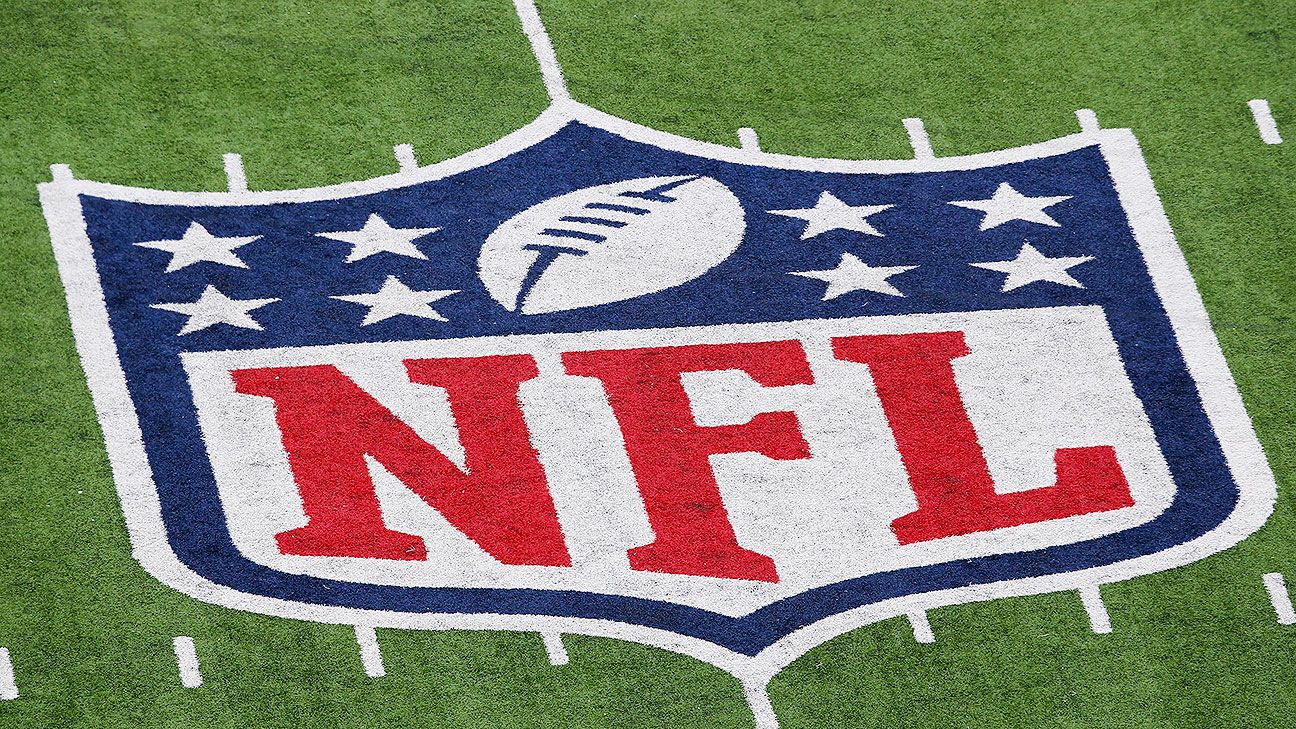Noncontact injuries for NFL players occurred at a higher rate on artificial turf compared to grass during the 2022 regular season, according to data released this week by the NFL Players Association.
The gap arose one year after the league moved to neutralize the debate about the two types of playing surfaces based on 2021 numbers.
Players have long said they prefer grass over artificial turf, arguing it was not only safer but also that it feels better to play on. In an essay posted to the NFLPA website Wednesday, union president J.C. Tretter noted that the injury rate on grass surfaces was lower from 2012 to 2020. Although the rates were essentially the same in 2021, Tretter termed that outcome an “outlier.”
“Instead of following the long-term data (which is clear on this issue), listening to players and making the game safer,” Tretter wrote, “the NFL used an outlier year to engage in a PR campaign to convince everyone that the problem doesn’t actually exist.”
“In short, last year, the gap — much like the NFL’s credibility with players on this issue — was as wide as it has ever been,” Tretter continued, “proving that (as the NFLPA suspected) 2021 was in fact an outlier. Now, 10 of the previous 11 years show the same exact thing — grass is a significantly safer surface than turf.”
Jeff Miller, the NFL’s executive vice president of communications, public affairs and policy, said in a statement released Thursday that “there are no simple answers” to this discussion.
“The NFL and the NFLPA have access to the same injury information, which is collected by independent experts and shared at the CBA-mandated Joint Field Surface Safety and Performance Committee meetings,” Miller said in the statement. “The committee, including the NFLPA’s experts, believe that simply playing on natural grass is not the answer to this complex challenge. Some artificial turf surfaces have a lower injury rate than some grass fields — and some grass fields have a lower injury rate than some artificial surfaces.
“Our goal is to decrease injuries on all surfaces. There are no simple answers, but we are committed to the substantial, ongoing work with the players and their expert advisors to make the game safer.”
That NFL/NFLPA committee uses a third-party company, IQIVA, to compile and analyze injury data. Addressing a public push last fall from players, coaches and agents to convert all stadiums to grass fields, Dallas Cowboys owner Jerry Jones dismissed the idea based on IQIVA data.
“Our league stats don’t see issues with the type [of] surface that we have [at AT&T Stadium] as opposed to natural grass,” Jones said. “We don’t see issues. No facts bear that out.”
The surfaces committee pays particular attention to lower-extremity injuries that occur without contact and could potentially be attributed to the surface itself, specifically to the knees, ankles and feet.
As recently as 2019, the rate of such injuries was notably higher on artificial turf fields than grass. But the difference began narrowing in 2020, and by 2021, the numbers were almost the same. Artificial surfaces had an incident rate of .042 per 100 in 2021, while the rate for natural surfaces was .041 per 100. That ratio “replicated” during the 2022 preseason, Miller said last fall.
That trend meant that “the discussion between synthetic surfaces and natural grass surfaces isn’t really the argument,” Miller said then. Instead, he said, the NFL and NFLPA should try to “decrease injuries on both.”
But the full data in 2022 returned to previous norms. The rate for noncontact lower-extremity injuries on artificial turf rose to a rate of .048 per 100. The corresponding rate on grass was 0.035.
In the post, Tretter also accused the NFL of allowing the Carolina Panthers to host a Week 16 game last season even after the artificial turf at Bank of America Stadium failed the league’s standard pregame test. According to Tretter, the league informed the NFLPA that the field reached acceptable conditions late in the first half.
“But the fact remains that the players in that game had to play on a field that the league acknowledges was not safe,” Tretter said. “That is beyond frustrating to players and unacceptable in the eyes of our union.”
The sides are headed to arbitration on the issue.
“The union’s assertions are incorrect,” Miller said in Thursday’s statement. “But we will make our arguments in the appropriate CBA-mandated grievance process, which is ongoing.”
Asked if they had any plans to change surfaces or otherwise respond to the NFLPA’s claims, the Panthers issued a statement from a spokesman of Tepper Sports Entertainment: “We are still discussing our options internally and have no further update at this time.”
ESPN Panthers reporter David Newton contributed to this story.
